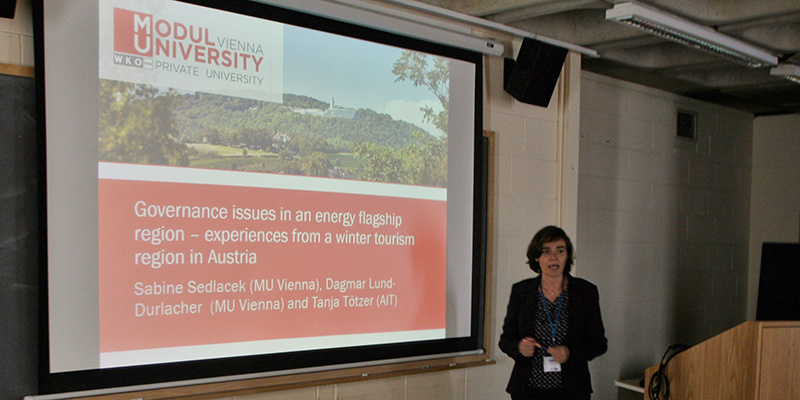MU at the Regional Studies Association Annual Conference in Dublin, Ireland
June 19, 2017
The Regional Studies Association (RSA) works with its international membership to facilitate the highest standards of theoretical development, empirical analysis and policy debate of issues at this sub-national scale, incorporating both the urban and rural and different conceptions of space such as city-regions and interstitial spaces.
Every year they run a programme of international conferences to support members in disseminating their research, creating debates, networking in an open community, and presenting their work to international audiences.
From June 5- 7th Prof. Sabine Sedlacek, Head of the Department of Public Governance and Sustainable Development, attended the RSA Annual Conference 2017 in Dublin, Ireland to share the latest MU-led research with a varied group of scholars.
She presented selected results from the research project "VorTEIL - Energy Flagship Region" under the title "Governance issues in an energy flagship region - experiences from a winter tourism region in Austria", which she co-authored with Prof. Dagmar Lund-Durlacher of the Department of Tourism and Service Management and Dr. Tanja Tötzer of the Austrian Institute of Technology.
The presentation focused on coordination mechanisms in a multi-stakeholder setting as identified in a detailed stakeholder analysis along three different types of institutional actors - tourism stakeholders, technology providers and public institutions. The team defined particular stakeholder characteristics such as interest, alliances, resources, power, and leadership and analyzed how these different stakeholder groups interact within their own governance regimes.
‘’The RSA conference is important because there you can meet scholars as well as practitioners working on policy related issues in regional contexts. It is an excellent environment for presenting empirical results of our research projects,’’ says Dr. Sedlacek.
The ''VorTEIL - Energy Flagship Region'' project is funded by the Austrian Climate and Energy Fund and is part of the RTI-initiative.






